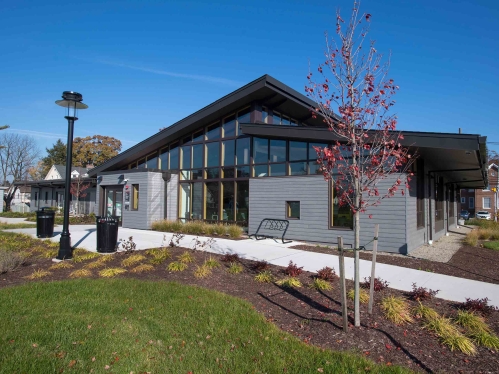
Clinical Services
Training the Next Generation of Providers
Part of the CYSEW mission is to train the next generation of community mental health providers in clinical psychological service provision. CYSEW provides paid practicum opportunities for GSAPP PsyD graduate student trainees to implement services for both undergraduate and graduate Rutgers student clients.
The main services directed and supervised by CYSEW, currently centered on ADHD in young adults, are outlined below.
ADHD & Mental Health Evaluations
Attention-Deficit/Hyperactivity Disorder (ADHD) is one of the most prevalent mental health conditions in children, adolescents, and young adults. The transition to college is often difficult for students with ADHD given the reduction in structure and support along with significantly increased academic demands. College and universities offer supports for individuals with ADHD such as accommodations, therapy, and medication. However, documentation in the form of an evaluation report is often required to access services, and such evaluations can cost thousands of dollars. This creates a significant barrier for students with ADHD seeking to maintain the supports they had in place in secondary school.
In partnership with the Rutgers Graduate School of Applied and Professional Psychology (GSAPP) Center for Psychological Services (CPS), CYSEW is addressing this barrier by training graduate students to provide low cost, evidence-based ADHD assessments for $150 out-of-pocket or $0 with Rutgers Student Insurance. This value is just enough to cover the costs of paying the graduate students and their supervisors.
The evaluation includes:
- a comprehensive diagnostic assessment of ADHD, anxiety, and depression, as these disorders can all lead to attention-related difficulties and frequent coexist
- a feedback session with recommendations tailored to your strengths and needs
To schedule our ADHD evaluation, please fill out the following screening survey: https://redcap.rwjms.rutgers.edu/surveys/?s=MYCFNPFCW7RDPTCF
To contact a member of our staff for specific questions, please email: cysew@gsapp.rutgers.edu.
ADHD ACCESS Program
College students with ADHD need access to evidence-based treatments designed to meet their specific needs. Many students with ADHD have difficulties with executive functions, such as self-regulation, organization, time management, and emotion regulation. These difficulties can result in academic struggles, including procrastination, trouble staying motivated to complete class or schoolwork, difficulties sustaining attention while studying, forgetting to complete assignments, and feeling overwhelmed.
ADHD-related difficulties are often exacerbated when adjusting to the increased academic demands and decreased supports associated with college or graduate school. Sometimes, individuals with ADHD who have struggled academically also begin to have negative thoughts and low self-efficacy.
The Accessing Campus Connections and Empowering Student Success (ACCESS) program, codeveloped by CYSEW Director Dr. Joshua Langberg, was specifically designed to meet the unique needs of college students with ADHD. Importantly, ACCESS has demonstrated positive outcomes in a large randomized controlled trial. The ACCESS intervention provides both small group and individual mentoring services. In partnership with the Rutgers Center for Adult Autism Services (RCAAS), CYSEW is providing the ACCESS intervention to Rutgers undergraduate & graduate students as part of the Rutgers College Support Program (CSP). Services are available both in-person and virtually.
Each ACCESS group session includes three parts: psychoeducation about ADHD, behavioral skills and strategies, and cognitive skills and strategies.
- The psychoeducation & knowledge component helps to empower students to understand what they need and how to advocate for themselves on a college campus. We even have providers at Rutgers (e.g., accommodations services, medication services, career services) come to the groups to present on what is available and how to access supports.
- The behavioral skills & strategies component helps students stay organized, plan ahead, and get work completed in a timely manner.
- The cognitive strategies component helps boost motivation and self-esteem while learning skills to counteract negative thought patterns. Importantly, the small group model helps students develop friendships and share ideas and strategies.
If you have questions about the College Support Program or ACCESS, you can email the Program Coordinator at CSP-info@rutgers.edu and/or request to meet via Zoom.
If you are a Rutgers undergraduate or graduate student with ADHD and would like to apply to the College Support Program for ACCESS services, please follow this link: CSP ACCESS Application
If you want to learn more about ACCESS, please visit the official ACCESS website: https://accessproject.uncg.edu/ or check out the research publications linked below.
*Students enrolled with CSP may include program fees in their total cost of attendance when applying for financial aid. Please contact the Rutgers-New Brunswick One Stop Student Services Center with inquiries about applying for federal and private loan resources to be used applying financial aid toward CSP services.

"Rutgers Is Expanding Services for Students With ADHD and Autism"
Initiated through Chancellor Francine Conway’s ScarletWell program, the collaborative effort aims to scale up assessment and treatment offerings for neurodivergent students at Rutgers.

